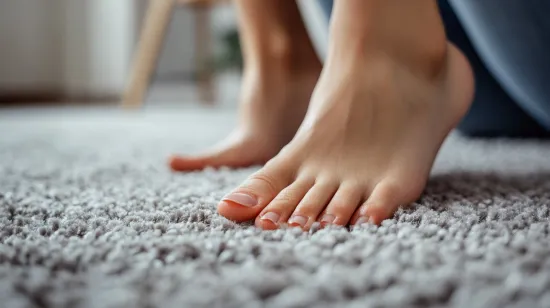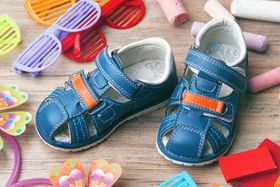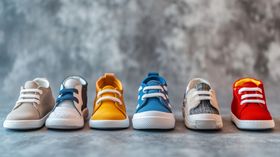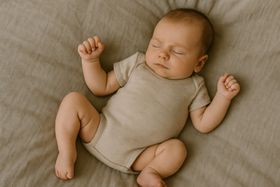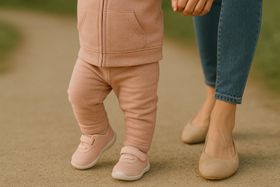Dealing With Shoe Allergies in Children: What to Look For
Proactive measures and expert advice to provide the best care for your child's sensitive feet
Updated December 5, 2024
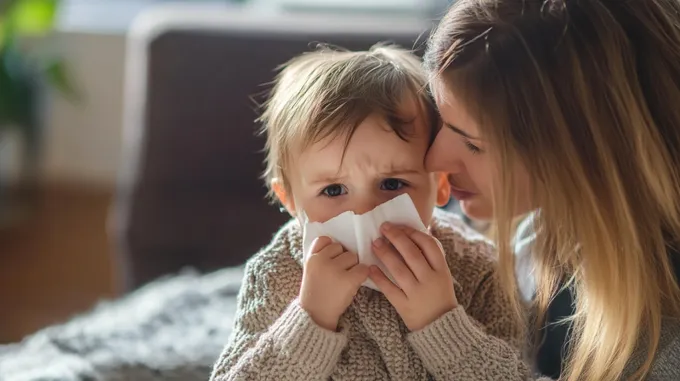
For centuries, shoes have acted as protective barriers for our feet. But sometimes, certain chemical materials like rubber and leather can cause skin allergies, also known as shoe contact dermatitis. In fact, a Pediatric Dermatology study found that rubber was the main culprit behind shoe allergies in a group of eight kids aged 1 to 13.
Although not common, allergies from footwear can cause discomfort and skin irritation in children. If you believe an allergic reaction may be causing your child's foot dermatitis, consider taking them for a patch test.
» Discover which shoe fabrics are best for children's feet
Understanding Shoe Allergies
Feet are prone to increased moisture due to sweat, limited air circulation, and staying damp for extended periods, making them more susceptible to skin allergens.
A shoe allergy is essentially a hypersensitivity reaction on the dorsal or the upper surface of the foot that's caused by chemical compounds in shoes. These allergies are a type of contact dermatitis, meaning the skin gets inflamed when it touches something it's allergic to.
Shoe contact dermatitis can arise from various sources, including topical medications, powders, deodorants, and the shoes themselves.
Common Symptoms of Shoe Allergies
- Rash on foot: Often seen as red spots on the tops of the feet and toes, but can occasionally appear on the soles, too.
- Rash on foot or ankle: Commonly found around the ankle, especially after wearing ankle boots or any footwear with an extended top.
- Itching and discomfort: Pruritus, or an intense itching sensation, may arise due to a shoe allergy. Children may sometimes confuse the urge to scratch with pain.
Possible Causes of Shoe Allergies
Several chemicals are known to cause contact dermatitis from shoes. The most prevalent components are tanning agents in leather products, like chromate salts, and certain rubber compounds, including:
- Thiuram mix
- Carba mix
- Mercaptobenzothiazole
- Mercapto mix
- Black rubber mix
Shoes also contain other potential allergens like adhesives, resins, metals, and pigments. These chemical additives are typically present in shoe soles. As a result, allergies from these compounds usually show up as itchy rashes and irritation on the bottom of the feet.
» Pick the best shock-absorbing shoes for kids who love to run and play
Steps to Address Shoe Allergies
To tackle shoe allergies, closely monitor whether the allergic reactions consistently occur when wearing specific shoes, materials, or brands. Also, avoid shoes made from coloured fabrics, inexpensive leather, rubber, or other materials that regularly trigger reactions.
Tip: If your child experiences ongoing or intense allergic reactions, consult a doctor. Your GP or podiatrist may recommend patch testing or antihistamine ointments or tablets.
Prevention and Mitigation
You can reduce the risk of allergic reactions by wearing socks and shoes made of breathable footwear. These fabrics help create a barrier between the skin and potential allergens. They also have a waterproof porous layer on the top, which allows cooler air to circulate inside the shoe.
Additionally, switching to hypoallergenic footwear can be beneficial for those prone to shoe allergies. These shoes are often made from natural fabrics like cotton and contain fewer chemicals and irritants.
» Learn how to wash different types of kids' shoes
Nurturing Foot Health Through Knowledge and Vigilance
Shoe allergies can be challenging and distressing, especially for children. Recognizing allergens, choosing the right footwear materials, and seeking medical advice when needed are crucial for managing and preventing these allergies.
As a parent, you need to understand the benefits of breathable fabrics and shoes, as they can be vital in safeguarding your children's foot health and overall wellness.
Explore First Walker's range of shoe collections. These shoes offer unmatched comfort and quality for your little one. They're also crafted to elevate your child's wardrobe and be kind to the environment.
